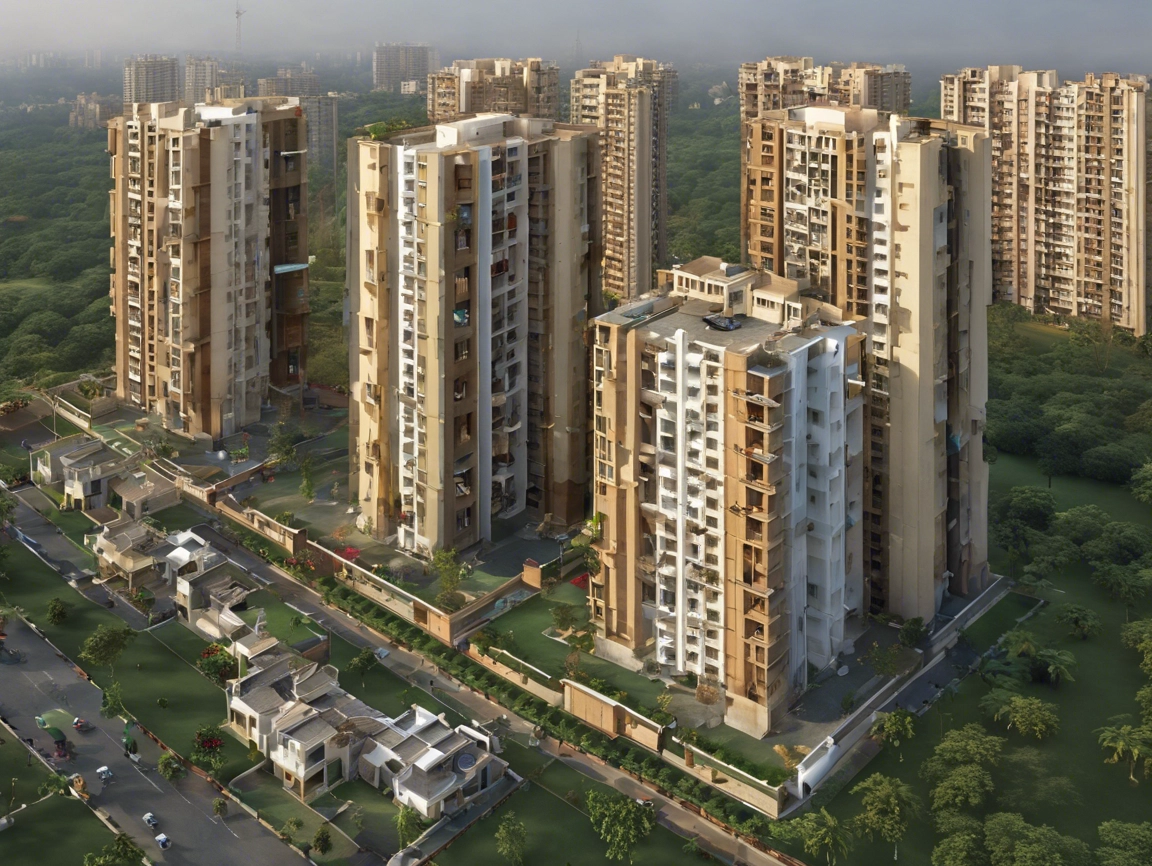The Union Budget 2024 has earmarked a substantial investment in urban housing through the PM AWAS Yojana Urban 2.0, promising a transformative impact on the real estate sector. This analysis delves into the implications of the announced Rs 10 lakh crore investment, with Rs 2.2 lakh crore allocated centrally, and its potential to rejuvenate the housing market, stimulate economic growth, and foster inclusive urban development.
A Landmark Investment in Urban Housing
Unprecedented Scale and Commitment
The allocation of Rs 10 lakh crore for urban housing marks a significant escalation in addressing India’s urban housing crisis. The substantial central assistance of Rs 2.2 lakh crore over five years underscores the government’s commitment to urban development and housing inclusivity.
Socio-Economic Impact
This massive financial infusion is poised to stimulate the construction sector, create millions of jobs, and boost allied industries such as cement, steel, and home appliances. The scheme’s inclusive approach, targeting both poor and middle-class families, is expected to mitigate urban inequality and enhance living conditions across India’s rapidly expanding urban areas.
Perspectives from Industry Leaders
LC Mittal, Director, Motia Group
Mittal highlights the scheme’s potential to mix socio-economic strata within urban areas, contributing to reduced inequality and improved living conditions. The planned investment signals the government’s serious intent to make urban development inclusive, with long-term benefits beyond housing provision.
Aman Gupta, Director, RPS Group
Gupta emphasizes the scheme’s ambitious targets and the critical timing of this investment given the projected urbanization. The Rs 2.2 lakh crore central assistance is seen as a robust public-private partnership model, fostering innovative financing and construction technologies in the affordable housing sector. The scheme’s focus on the ‘missing middle’ is pivotal in addressing the urban housing shortage, potentially transforming the urban landscape.
Anurag Goel, Director, Goel Ganga Developments
Goel views the announcement as a significant boost for the real estate sector, particularly the affordable housing segment. The projected annual target of 20 lakh houses necessitates scaling up current operations, likely spurring demand for construction materials and reviving related industries. The inclusion of middle-class families broadens the scheme’s scope, potentially leading to diverse housing solutions and urban designs.
Siddharth Maurya, Founder & Managing Director, Vibhavangal Anukulakara Pvt. Ltd.
Maurya underscores the scheme’s scale, addressing roughly 22% of urban households as per the 2011 census. The stable funding base provided by the central assistance is crucial for long-term planning in real estate. Effective implementation could bridge the urban housing gap, contributing significantly to India’s economic growth and urban development.
Also Read: Budget 2024: Real Estate Sector’s Key Expectations and Recommendations
Potential Outcomes and Challenges
Stimulating Economic Growth
The Rs 10 lakh crore investment is expected to have a multiplier effect on the economy, stimulating sectors directly and indirectly related to housing. Job creation in construction and allied industries will boost economic activity and income levels, fostering broader economic growth.
Inclusive Urban Development
The scheme’s focus on both poor and middle-class families aims to create mixed-income communities, promoting social cohesion and reducing urban disparities. By catering to diverse housing needs, the initiative seeks to foster more equitable urban development.
Implementation and Monitoring
Ensuring the effective implementation of the PM AWAS Yojana Urban 2.0 is critical to achieving its ambitious targets. Robust monitoring mechanisms and adaptive strategies will be essential to address challenges and optimize outcomes.
The Union Budget 2024’s substantial investment in urban housing through the PM AWAS Yojana Urban 2.0 represents a decisive step towards addressing India’s urban housing challenges. With the potential to stimulate economic growth, create jobs, and foster inclusive urban development, this landmark initiative underscores the government’s commitment to transforming the urban housing landscape. The insights from industry leaders highlight the multifaceted impact of this investment, offering a comprehensive view of its potential benefits and challenges.
Subscribe to get updates on our latest posts and market trends.






Join The Discussion